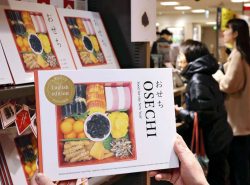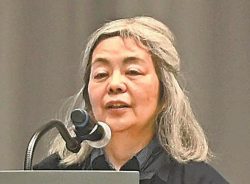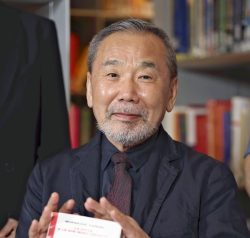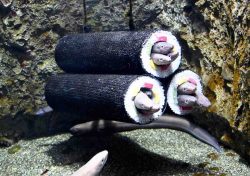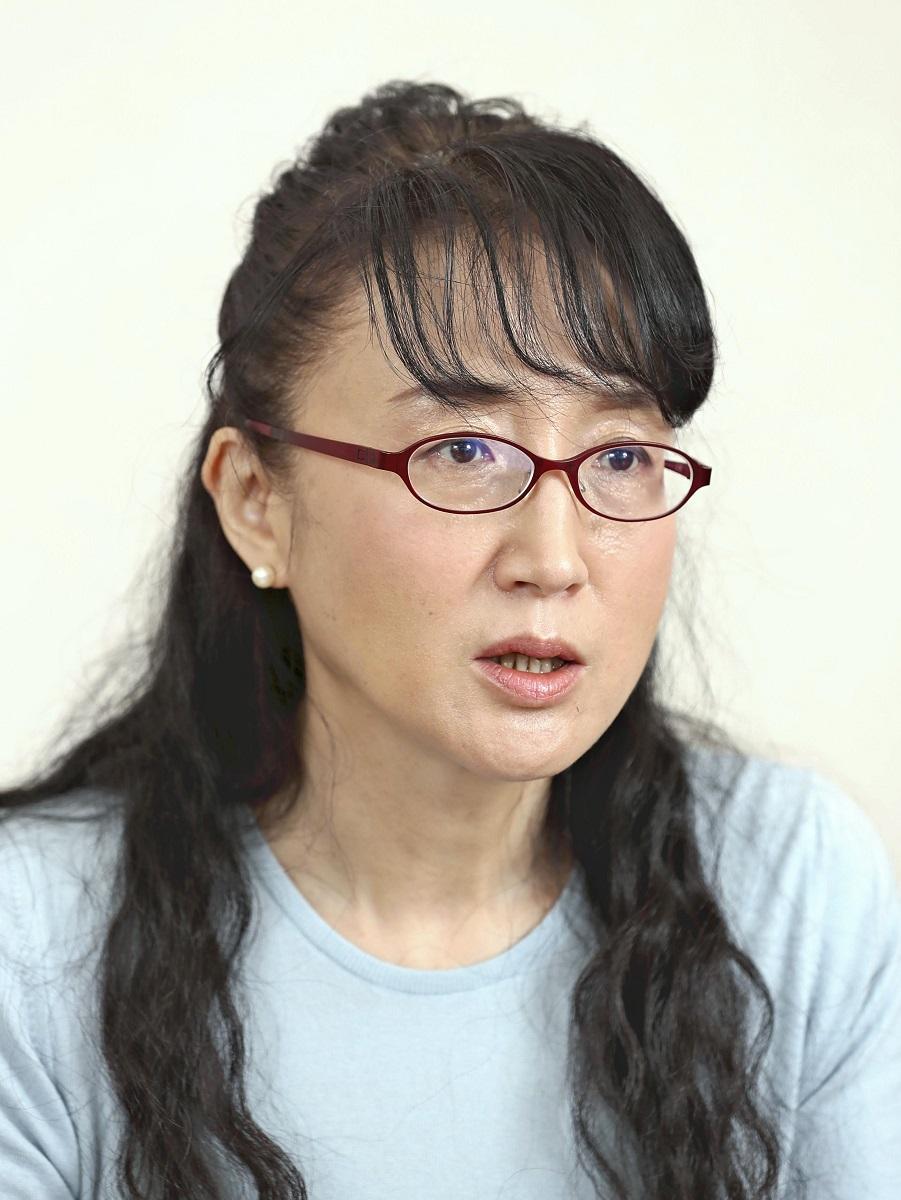
Yu Miri
18:22 JST, March 4, 2021
Ahead of the 10th anniversary of the Great East Japan Earthquake, writer Yu Miri spoke to Yomiuri Shimbun Staff Writer Shinya Machida in Tokyo about her connection to the disaster-hit area. The following is excerpted from the interview.
It was April 21, 2011, when I visited Fukushima Prefecture after the Great East Japan Earthquake. I wanted to see the cherry blossoms blooming in the Yonomori district in the town of Tomioka and other areas before they were designated as no-entry zones due to the nuclear power station crisis.
After that, I started commuting to Minami-Soma in Fukushima Prefecture from Kamakura [in Kanagawa Prefecture], where I was living at the time. In 2012, I started hosting a program called “Futari to Hitori” (Two and one) on temporary disaster radio station Minami-Soma Hibari FM, in which I listened to the stories of local people.
I have listened to 600 people in total, including schoolteachers and people who lost family members. When I cried while listening to a woman who lost her parents in Onagawa, Miyagi Prefecture, she told me not to let my tears be the end of the story. I felt responsibility in listening to her story.
In 2015, I moved to Minami-Soma. After a while, I felt that my inner self was unraveling.
As a Korean resident in Japan, I was obsessed with the existence of “me” when I was young. I was writing novels in the midst of a “self hell,” in which I felt like I was waiting for myself even after running away from my own heavy, distorted self.
But I fell apart after I heard the stories of many people in the disaster-stricken area. What came out of the experience was “Tokyo Ueno Station,” which won the U.S. National Book Foundation’s National Book Award for Translated Literature.
I had thought that people overseas would like to read stateless works that could be easily translated into any language or easily understood in any country. But I received the award for [my novel that tells] a local story featuring a man from the Yasawa district in Kashima Ward, Minami-Soma.
I currently run a bookstore called Full House in Odaka Ward, Minami-Soma. The owner of a nearby fish shop would come to my store to buy a period novel, and a person who was a worker of some kind would purchase a thick book because there was no TV in his dormitory.
There are “people” living in books. I feel that meeting others in a book is more important for many people when it is difficult to interact with others due to the influence of the coronavirus pandemic.
Since I was 18 years old, I have consistently written for “people who have no place to go.” In the areas affected by the Great East Japan Earthquake 10 years ago, and now the pandemic, there are many people who can easily fall beyond loneliness with just one wrong step. As their children and grandchildren who used to live with them have left for the cities, some elderly people live alone. We should not forget that for people in Fukushima, this is the second time that they have had to wear masks and stay confined indoors. The first was the nuclear accident in 2011.
On Feb. 13 this year, an earthquake registering a maximum intensity of upper 6 on the Japanese seismic scale hit off the coast of Fukushima Prefecture. After an inspection by the Minami-Soma city office, I received a certificate of quake damage for my house. It says my house was partially damaged. If we had been hit by such a strong tremor at a mealtime, when we were cooking and eating, many fires might have occurred.
For the next 10 years, I want to reweave my unraveled self and write novels.
Top Articles in Culture
-
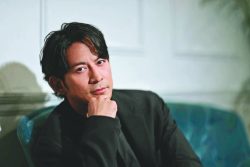
Junichi Okada Wears Three Hats in ‘Last Samurai Standing,’ Serving as Star, Producer, Action Choreographer in Thrilling Netflix Period Drama
-
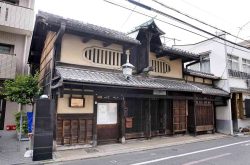
Lifestyle at Kyoto Traditional Machiya Townhouse to Be Showcased in Documentary
-

Maison&Objet Kicks off Near Paris with Japanese Lighting Designers’ Installations on Display, Creating Rich Environment
-

‘Jujutsu Kaisen’ Voice Actor Junya Enoki Discusses Rapid Action Scenes in Season 3, Airing Now
-

Prestigious Japanese Literature Prize Names Toriyama, Hatakeyama as Winners
JN ACCESS RANKING
-

Univ. in Japan, Tokyo-Based Startup to Develop Satellite for Disaster Prevention Measures, Bears
-

JAL, ANA Cancel Flights During 3-day Holiday Weekend due to Blizzard
-

China Confirmed to Be Operating Drilling Vessel Near Japan-China Median Line
-

China Eyes Rare Earth Foothold in Malaysia to Maintain Dominance, Counter Japan, U.S.
-

Japan Institute to Use Domestic Commercial Optical Lattice Clock to Set Japan Standard Time


